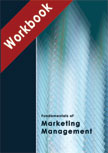Unilever's 'Power Brands' Strategy
|
|
ICMR HOME | Case Studies Collection
Case Details:
Case Code : MKTG263
Case Length : 09 Pages
Period : 1999-2006
Pub Date : 2011
Teaching Note : Not Available
Organization : Unilever
Industry : FMCG
Countries : UK; Global
To download Unilever's 'Power Brands' Strategy case study
(Case Code: MKTG263) click on the button below, and select the case from the list of available cases:


Price:
For delivery in electronic format: Rs. 500;
For delivery through courier (within India): Rs. 500+ Shipping & Handling Charges extra
» Marketing Case Studies
» Marketing Management Short Case Studies
» View Detailed Pricing Info
» How To Order This Case
» Business Case Studies
» Case Studies by Area
» Case Studies by Industry
» Case Studies by Company
Please note:
This case study was compiled from published sources, and is intended to be used as a basis for class discussion. It is not intended to illustrate either effective or ineffective handling of a management situation. Nor is it a primary information source.
Chat with us

Please leave your feedback

|
|




<< Previous
Excerpts
Background Note
|
Unilever was established in 1930 when the Dutch margarine company
'Margarine Unie ' merged with British soap maker 'Lever Brothers' (Refer Annexure I). These companies needed the same raw materials (e.g. oilseeds), both were involved in large-scale marketing of household products, and both were using similar distribution channels...
'Power Brands' Strategy
Unilever began implementing the 'Power Brands' strategy in September 1999. Power branding referred to building multi-product, multi-category brands which had global reach. The idea behind this strategy was to build global brands which endorsed multiple products in various categories...
|

|
But All Was Not Well!
Unilever's 'Path to Growth' strategy aimed at re-structuring the brand portfolio to concentrate on core brands, bringing about considerable improvements in the supply chain and innovation, having a closer consumer focus, and building an agile organization...
'One Unilever': The Revived Power Brands Strategy?
The 'Power Brands' strategy aimed to make the firm more efficient and its brand portfolio more manageable. Although Unilever saved about €4 billion ($4.9 billion) in costs over five years (2000-2005), it witnessed a 31% fall in profit in 2004, to €1.9 billion (£1.3 billion)...
Exhibits
Exhibit I: Unilever's Power Brands
Annexure I: Formation of Unilever
|
|










